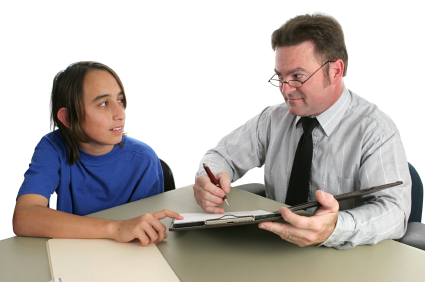Cognitive Behavioral Therapy Tailored For Children and Adolescents
At a symposium on early-onset depression at the 2013 meeting of the American Academy of Child and Adolescent Psychiatry, Betsy Kennard described a course of cognitive behavioral therapy tailored to eliminating residual symptoms in children with unipolar depression who had no family history of a parent with bipolar disorder. In the same study Graham Emslie discussed, the investigators considered cognitive behavioral therapy for the treatment of childhood- and adolescent-onset depression.
The therapy was aimed at achieving health and wellbeing and focusing on positive attributes and strengths in the child, and it was designed to be a shorter than usual course (i.e. four weekly sessions, then four every other week, and one at three months). This regimen typically also included three to five family sessions. Other key components of the therapy included anticipating and dealing with stressors, setting goals, and practicing all the skills learned.
On a visual timeline, children identified and wrote down past stressors, how they felt when depressed, their automatic cognitions, ways they would know when they were feeling down again (i.e. feeling isolated, angry at parents, etc.), their strengths and skills, what obstacles to feeling better existed and how to circumvent them, and their long-term goals.
The therapy was based on the research of Martin Seligman and Giovanni A. Fava, plus Rye’s Six S’s (soothing, self-healing, social, success, spiritual, and self-acceptance). The children participated in practice and skill-building in each domain. Sleep hygiene and exercise were emphasized. The idea of “making it stick” was made concrete with phrases on sticky notes taken home and put up on a mirror. Postcards were even sent between sessions as reminders and for encouragement.
Editor’s Note: Most depressed kids don’t get completely well (only about 20% after an acute course of medication). Something must be added. This kind of specialized cognitive behavior therapy works and keeps patients from relapsing. This study included only those children with unipolar depression whose parents did not have bipolar disorder. However, Emslie noted that depressed children of a bipolar parent also had an exceedingly low rate of switching into mania (2 to 4%) in his experience, so fluoxetine followed by cognitive behavioral therapy might be considered for treating unipolar depressed children of a bipolar parent.
Once children have developed bipolar disorder, evidenced by hypomania or mania followed by depression, antidepressants are to be avoided in favor of mood stabilizers and atypical antipsychotics, since there is a higher switch rate in these youth when they are prescribed antidepressant monotherapy.
Since children with bipolar disorder are at such high risk for continued symptoms and relapses, the strategy of adding cognitive behavioral therapy to their successful drug treatment would appear appropriate for them as well as those with unipolar depression, especially since there is a large positive literature on the efficacy of cognitive behavioral therapy, psychoeducation, and Family Focused Therapy (FFT) in children and adults with bipolar depression. As noted previously, FFT is very effective for children at high risk because of a parent with bipolar disorder and who are already symptomatic with anxiety, depression or BP-NOS.
Moral of the story: getting kids with unipolar or bipolar depression well and keeping them well is a difficult endeavor that requires specialized, combined medication and therapy approaches and follow-up education and therapy. This is for sure. The hope would also be that good early and long-term intervention would yield a more benign course of recurrent unipolar or bipolar disorder than would treatment as usual (which all too often consists of medication only).


